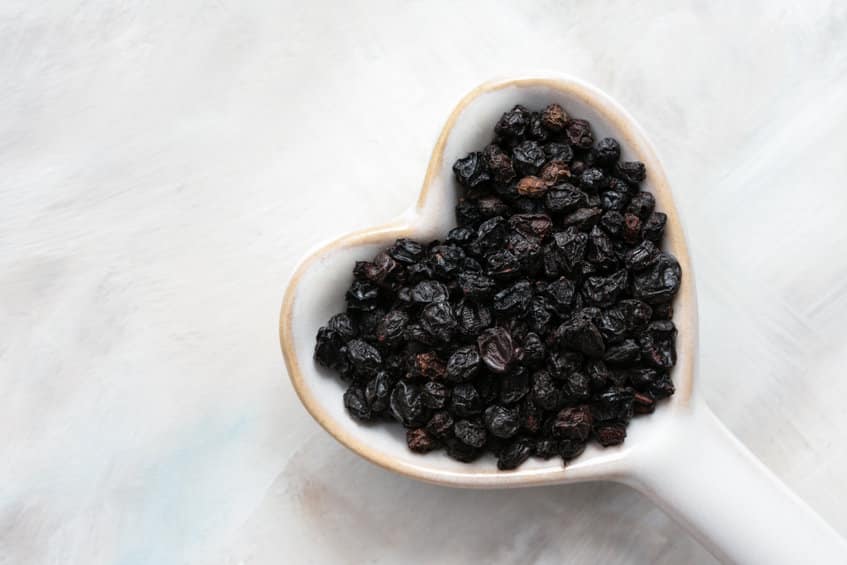The Skinny:
Think elderberry and the image of someone’s grandmother often pops up. Usually, this vision has a grandmother offering up a tray of elderberry muffins, a jar of elderberry jam, or, if granny has a bit of pizazz, a bottle of homemade elderberry wine (think the famous Elton John song). A recurring vision of elderberries evokes thoughts of the past since they have been around forever, tracing their roots back to European or black elder trees. Another reason for these visions is that most people couldn’t identify these dark purple berries if their grandmothers were delivering a withering look of disapproval. This knowledge gap may be understandable, but it is still disappointing considering research abounds to support the notion that elderberries deliver substantial health benefits. Of course, would-be elderberry hunters should be forewarned. Raw, unripe elderberries and other parts of the elder tree, such as the leaves and stem, contain toxic substances that can cause nausea, vomiting, and diarrhea. Thankfully, cooking eliminates these toxins and their associated problems. These concerns aside, WellWell has identified the benefits these ancient berries can provide. Read on.
The Slate:
Cold and Flu
Elderberry supplements boost immune systems and prevent or treat colds and flu. Several studies support the notion that elderberry supplements can ward off these issues and even lessen the symptoms of those already affected by a cold or flu.
May Help with Blood Sugar
These berries may help balance blood sugar by increasing insulin secretion and boosting the rate that cells take in glucose. This has led some researchers to believe elderberries may be able to treat diabetes.
Prevents Cancer
Elderberries have been used in cancer treatments in many areas of the world with some reasonable success. The positive impact is due to the antioxidant-rich quercetin in elderberries. It can stimulate immune systems, supporting treatments. These berries may also inhibit a biochemical process called hedgehog signaling, which has been linked to cancer.
Nutritional Value
They are very nourishing, containing phytosterols, carbohydrates, proteins, and fatty acids. They also have vital vitamins and minerals. Raw elderberries, for example, contain more than five times the iron and calcium, four times the vitamin C, and ten times the vitamin A of raw blueberries.
Reduces Inflammation
Another elderberry benefit is its ability to significantly reduce inflammation throughout the body, which provides multiple health benefits. This includes reducing inflammation in joints and the digestive tract, which reduces the risk of getting arthritis and ulcers, respectively. The anti-inflammation reaches to eyes, which can reduce asthma symptoms.
Eyes Up:
Besides muffins, jams and wine, what do you use elderberries for? Let us know at info@wellwellusa.com.
WellWell editors independently identify services and products of interest. If readers purchase anything through the associated links, WellWell may earn a commission, which goes to support our work. Learn More.













